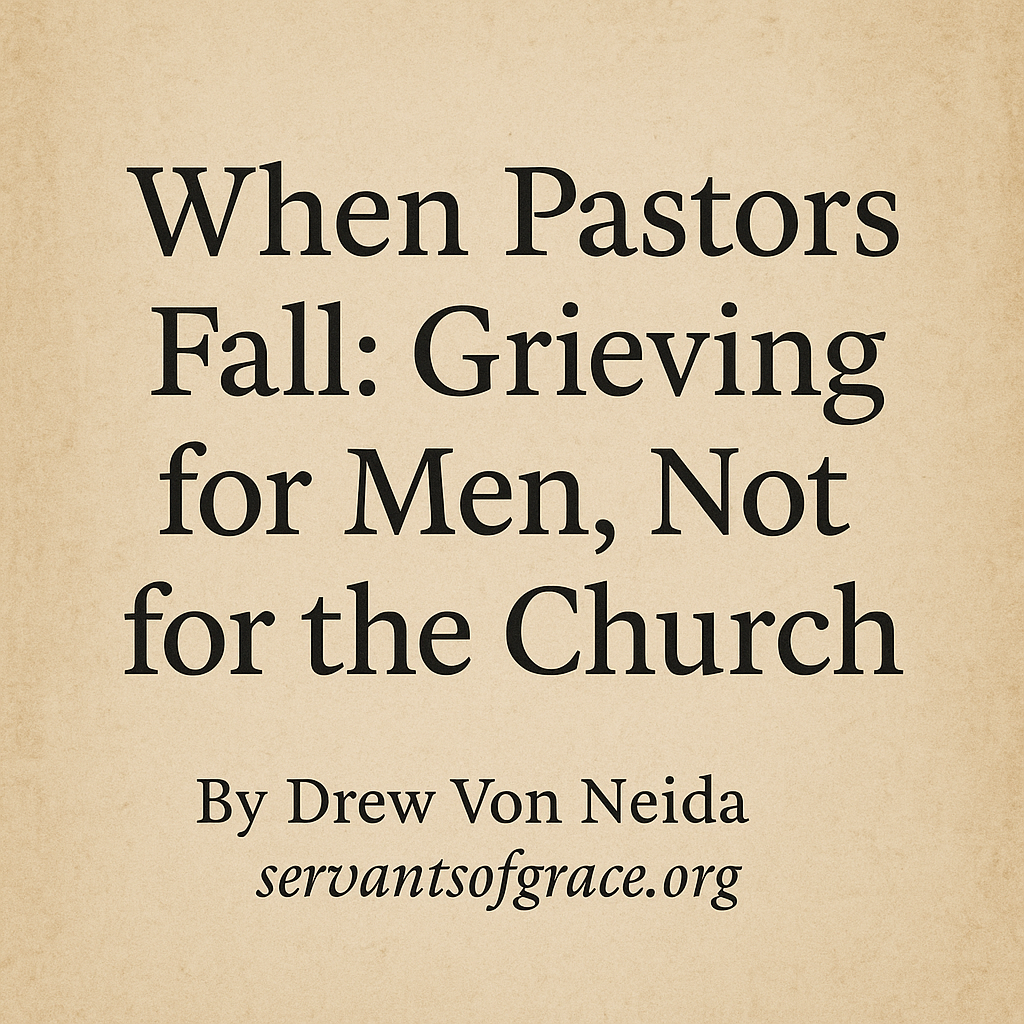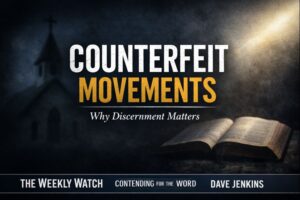⏱️ Estimated Reading Time: 5 min read
There is a kind of sorrow that does not arise from fear or fragility—but from reverence. It’s not a sorrow for the Church herself—for Christ has promised that the gates of hell will not prevail against her (Matthew 16:18).
Rather, it is a sorrow for the men who once stood behind pulpits, who were once voices of conviction at conferences and shepherds of flocks—and who have now fallen.
Not because the Church is weak.
But because their hearts were never truly anchored in the beauty of Christ.
“I am not sad for the Church as a whole. For Christ builds and sustains His Church. I am sad for the men who use the Church for personal gain—who mask their fleshly and prideful procurements as blessings from the Lord. They demonstrate they do not know the beauties of Christ.”
A Ripple of Collapse—But Not of Defeat
When a well-known pastor falls—whether through moral failure, doctrinal drift, or exposed duplicity—the headlines multiply. Social media lights up. Critics seize the moment.
But the Church of Christ does not tremble.
She does not collapse with the rise and fall of public figures. She is not built on charisma, clout, or conferences.
She is anchored in Christ—sustained by His Word, sanctified by His Spirit, and promised to be presented spotless before His glory (Ephesians 5:25–27).
So why do we grieve?
Not for the Church.
We grieve for the man.
Not because he lost his platform.
Not because his name is now whispered in scandal.
But because, beneath the applause, the books, the podcasts, and the influence—he may never have known the glory of Christ. He may have pursued ministry, but not the Master. He may have used the Church, but never loved her Groom.
And that is a tragedy with eternal consequence.
A Subtle Exchange—and a Deadly One
There is a quiet danger in public ministry: to substitute communion with Christ for what only looks like blessing.
The applause of man starts sounding like the voice of God.
Financial gain is repackaged as favor from above.
Pride is camouflaged as boldness.
And influence is mistaken for intimacy.
It’s slow. It’s subtle. And it’s deadly.
The man may still preach, still travel, still post. But underneath, he is hollow.
As Paul warned Timothy, “evil people and impostors will go on from bad to worse, deceiving and being deceived” (2 Timothy 3:13).
Some are deceived even by their own ministry.
The True Mark of a Man of God
Not followers.
Not book deals.
Not the size of the crowd.
The true mark of a man of God is this:
- Does he love the beauty of Christ?
- Does he tremble before the Word?
- Does he weep over his sin?
- Does he pray in secret?
- Does he shepherd with gentleness?
- Does he long to decrease, that Christ might increase?
There is a majesty in Christ that makes the most glittering platform look like dust.
To know Him is to be undone by His holiness, drawn by His mercy, and satisfied in His sufficiency.
But the man who uses ministry for self has not seen that glory. Or if he did, he traded it—for influence, income, or applause.
Let the Church Take Heart
When another public pastor falls, we don’t need to spiral into panic or distrust.
We do not despair.
We grieve.
But not for the Church—for Christ sustains her.
We grieve for the man who never knew her Head.
Let it drive us to prayer.
Let it cause us to tremble.
Let it remind us that Jesus is not impressed by followers or funding—He is after faithfulness.
And may this be our cry in an age of collapse:
“Lord, give us leaders who know You—not merely as a doctrine, but as their treasure.”
Frequently Asked Questions
Does the fall of a pastor mean the Church is failing?
No. While it is grievous when a public leader falls, the Church remains secure in Christ. Jesus is the one who builds and sustains His Church (Matthew 16:18; Ephesians 5:25–27). Our hope is not in men, but in the unshakable foundation of Christ.
Why should we grieve for fallen pastors?
Because behind the public collapse is often a heart that never truly knew the glory of Christ. It’s not the loss of influence that should grieve us—but the possibility that the man used ministry for self, not out of love for Christ and His people.
How can we guard our own hearts in ministry?
By regularly seeking Christ in secret prayer, trembling before the Word, repenting of sin, and shepherding with humility. True ministry flows from intimacy with Christ, not performance for others.
What is the true mark of a faithful pastor?
Not fame, following, or influence—but a deep love for the beauty of Christ, a heart that trembles before God’s Word, and a life marked by private prayer, humility, and faithfulness to God’s people.
How should the Church respond to moral failure in leadership?
With grief, not cynicism. With clarity, not compromise. We should examine our own hearts, recommit to biblical faithfulness, and pray that the Lord would raise up leaders who treasure Christ more than platforms.
What are the dangers of celebrity culture in the Church?
Celebrity culture turns shepherds into performers and pulpits into stages. When influence is prioritized over intimacy with Christ, ministry becomes a brand instead of a calling. This culture often rewards charisma over character and leads people to place their hope in men instead of Christ. In the end, it fosters pride, isolates leaders, and sets the Church up for disillusionment when those platforms collapse.
Drew is a regular writer at Servants of Grace and is a regular contributor to the Warriors of Grace podcast. He holds a Bachelor of Science in theological and biblical studies and a Master of Arts in Biblical exposition, both from Liberty University. He lives in Taylorsville, Georgia with his wife Brandy and their three children.




